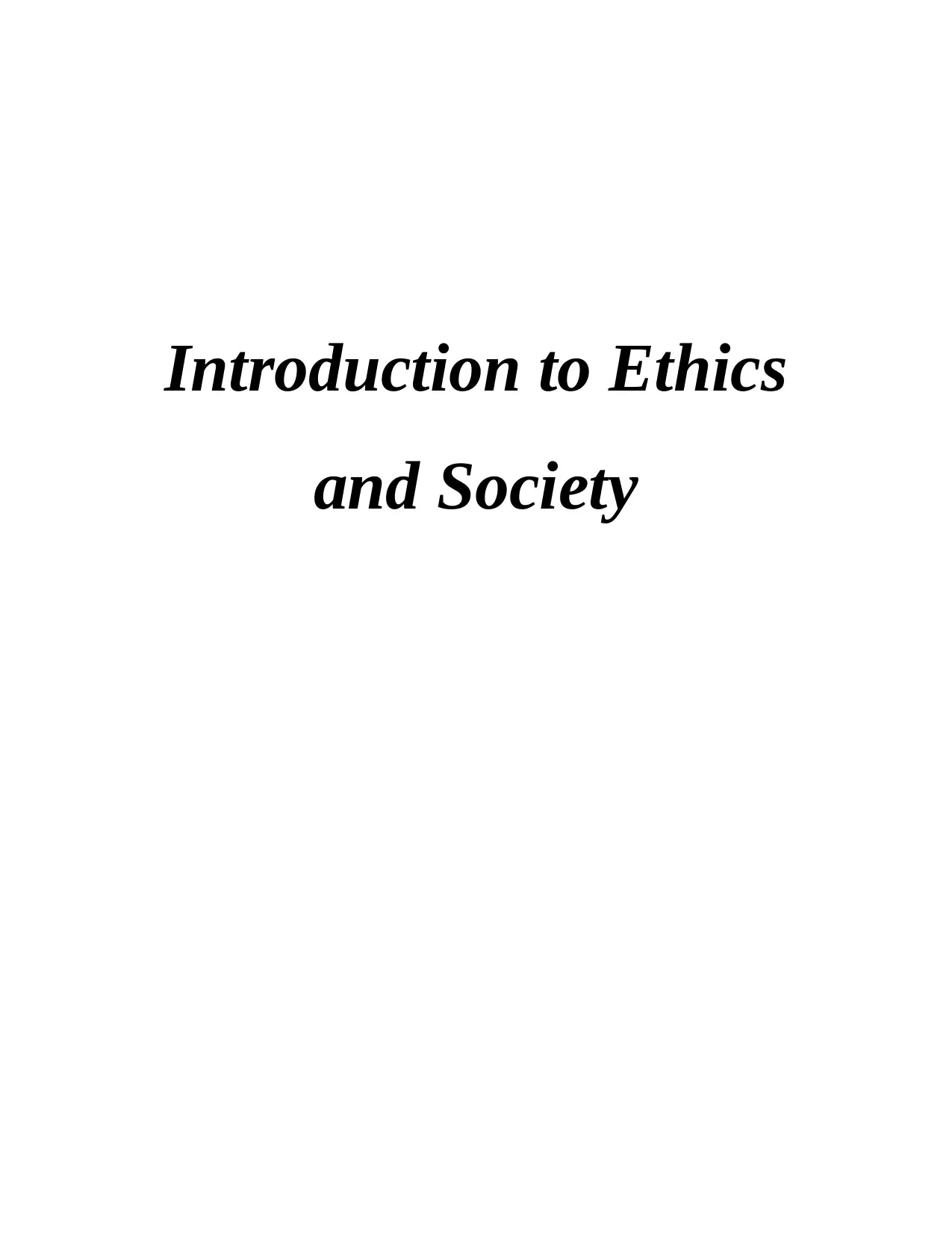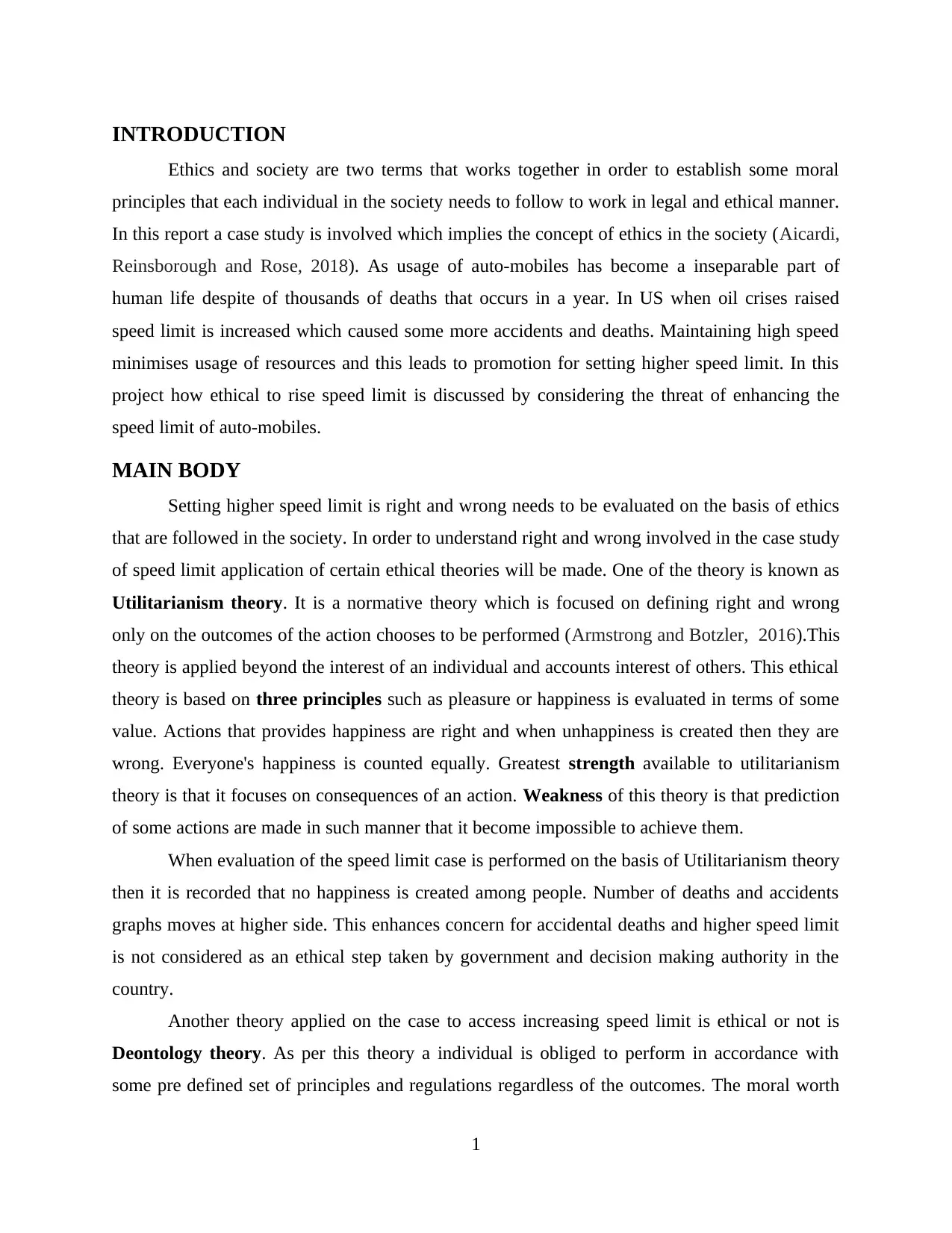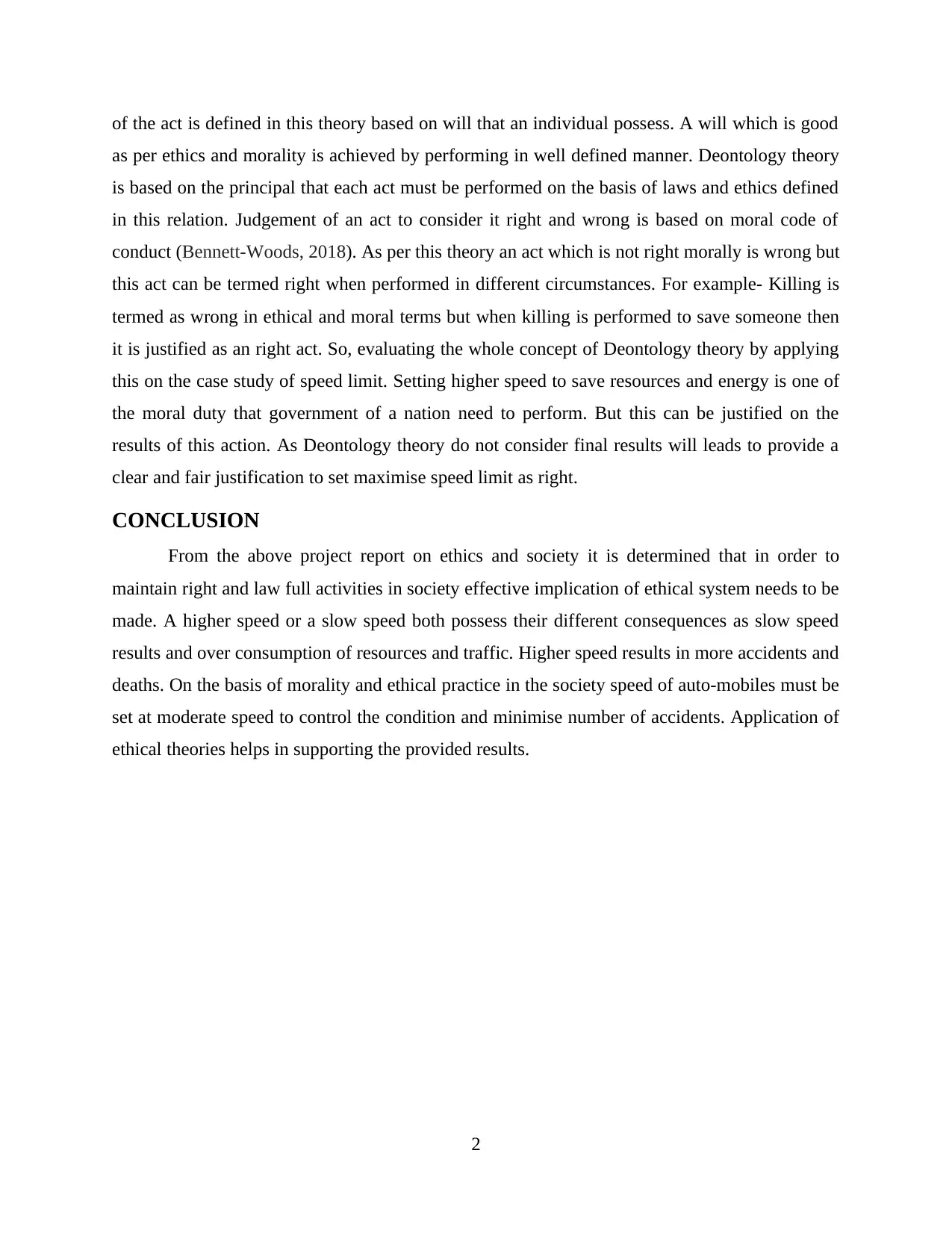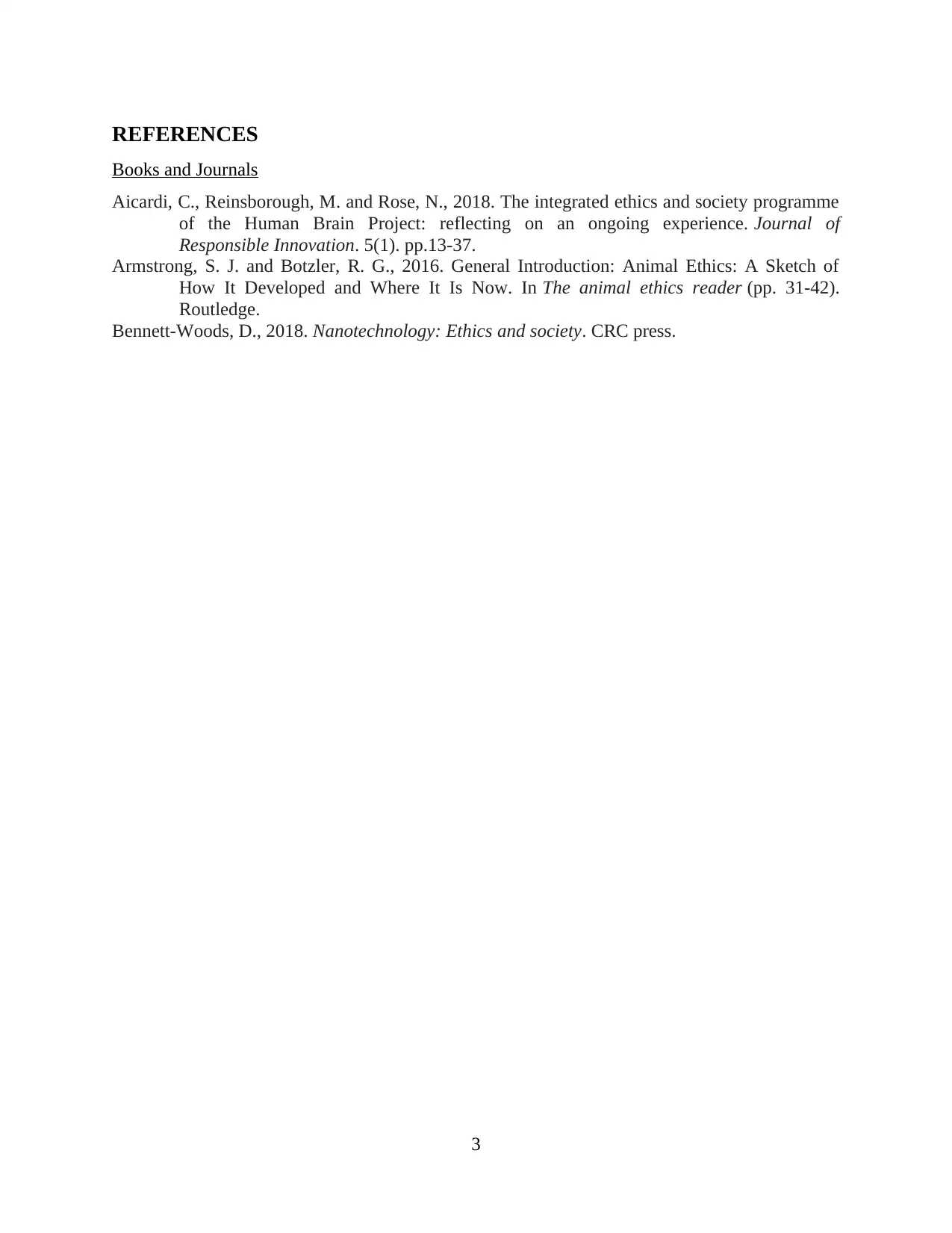Ethics and Society: Analyzing Speed Limit and Ethical Theories Report
VerifiedAdded on 2023/01/13
|6
|904
|83
Report
AI Summary
This report delves into the intersection of ethics and society, using a case study focused on speed limits. The introduction establishes the importance of ethical principles in societal conduct, followed by a discussion of the impact of automobile usage and the consequences of increasing speed limits, particularly in the context of the US oil crisis. The main body applies two key ethical theories – Utilitarianism and Deontology – to evaluate the ethical implications of raising speed limits. Utilitarianism is assessed based on its focus on outcomes, showing how increased speed limits lead to negative consequences such as more accidents and fatalities. Deontology, which emphasizes adherence to principles regardless of outcome, is also applied, highlighting the moral duty to conserve resources. The conclusion synthesizes the findings, advocating for a moderate speed limit to balance resource conservation with safety, and emphasizing the role of ethical theories in supporting these conclusions. The report references academic sources to support its arguments.
1 out of 6













![[object Object]](/_next/static/media/star-bottom.7253800d.svg)